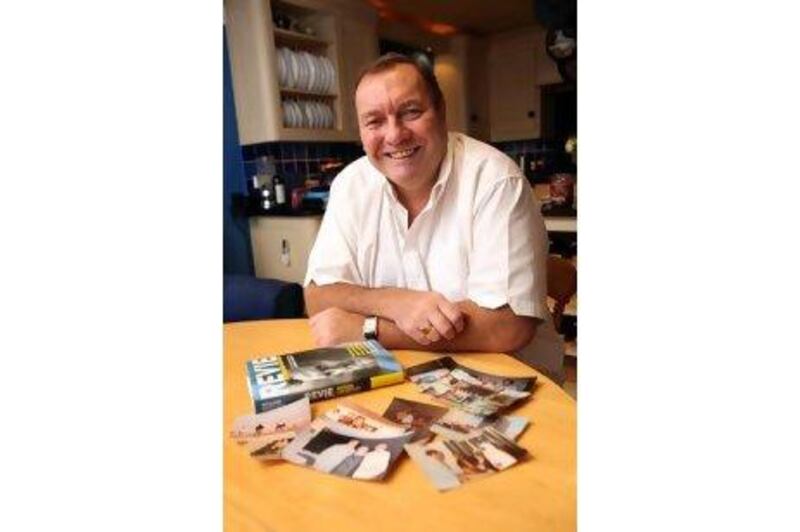When the Club World Cup concludes tomorrow evening at Zayed Sports City, in a stadium fit to stage any major final, spare a thought for the memory of the late Don Revie, the Englishman who made the move out to the Emirates in 1977 and helped bring a hitherto unheralded sporting nation to the attention of the world.
Revie had previously been a wildly successful club manager with Leeds United - he had won two league championships and four other major trophies in 13 years at the helm - before he took up a similar post with England in 1974. Three years later, and after a period of indifferent results, Revie announced his intention to leave the "biggest job in football" and move to the Gulf to coach what was then a fledgling UAE national side.
Little could have prepared Revie for the media storm his departure caused. The English press dubbed him "Don Readies", an uncharitable reference to the reported huge salary he would be paid by his new employers in the Middle East.
This, of course, is one side of the story, one which most historians of the game and, indeed, fairweather fans will be familiar with, but what happened next to the man who had won just about everything domestically, but who had failed to turn around a talented yet misfiring England side?
His son Duncan Revie picks up the story in the late 1970s.
"I remember dad calling a family meeting and telling mum, my sister and myself that he'd received an offer," he recalls. "He wanted our advice. It was obviously a huge decision, as the UAE was [at that time] a relatively unknown place.
"We talked about it a great deal, I don't think dad would have accepted the job without our support. But the more we thought about it, the happier we were to give our blessing."
If only the English media had been quite so accommodating.
"He was given a torrid time, because he broke the story to one newspaper [the Daily Mail] and the other papers resented that.
"But what he actually did was take a job before he lost his current one. What the public didn't understand was that he was about to be sacked by England - there's no question about that."
Duncan was a young adult when Revie Senior took the coach's role in the UAE, but became a regular visitor to Dubai, where his father was based.
"I remember dad saying when he arrived that he'd been picked up at the airport in a Rolls-Royce. That was exciting enough for me to begin with and my own visits didn't disappoint either."
On his first trip, Duncan recalls being met at the airport by a party of dignitaries, although the precise details have been erased from his memory by the intervening years.
"All I can remember is looking out of the window on my first car journey in Dubai," he says. "Unlike today, there were few skyscrapers and luxury hotels to catch the eye.
"We were driven miles into the desert and suddenly there was dad's villa in the middle of nowhere. It had six bedrooms and a swimming pool, and dad had a butler, a houseboy and a cook to look after him.
"The funny thing is, on a recent visit to Dubai, I went back [to that same neighbourhood] for the first time in years, and the area is now all built up and dad's old villa is surrounded by high walls and padlocked gates."
Revie Senior would spend two years in charge of the UAE national team before also later managing two club sides in the region: the UAE Pro-League side Al Nasr, and Al Ahly in Egypt.
"Dad was definitely a pioneer. He introduced tactical ideas and coaching techniques that had not been seen in [the Middle East] before. He was proud of what he did and what he achieved. He started introducing the professionalism that eventually helped the UAE qualify for the 1990 World Cup finals in Italy.
"They had a vision, not just about sport, but events generally," says Duncan, referring to the nation his father called home more than three decades ago.
"The UAE is now a must-see tourist destination. These things don't happen by accident. For a lot of people of my generation, my dad's decision to take the job in Dubai was the first time they had heard of the UAE. Now, everyone knows someone who has been on holiday there.
"From a sporting point of view, you've now also got the likes of Abu Dhabi Grand Prix, the European golf tour's Race to Dubai, and the top world stars in tennis play there too. It's come a long, long way and I am proud my father played a part in that process."
One unexpected bonus of Revie's time in the UAE was the close relationship the whole family forged with the royal family.
"Three years after dad finished in the Middle East, he contracted motor neurone disease. When Sheikh Zayed heard the news, he flew him in his private jet behind the Iron Curtain because it was rumoured a doctor there had found a cure," stresses Duncan. Sadly, the degenerative disease would claim Don Revie's life on May 26, 1989.
As for Duncan, his own company Soccerex, a global football convention business, has been staging events in Dubai for more than a decade.
"We had to postpone [an event in 2001] because of the September 11 attacks in New York. The Gulf War followed soon after, but the [authorities] bent over backwards to make sure we didn't lose out. They really helped us through two bad years," he says. "I like to think that showed how much dad's legacy meant."






